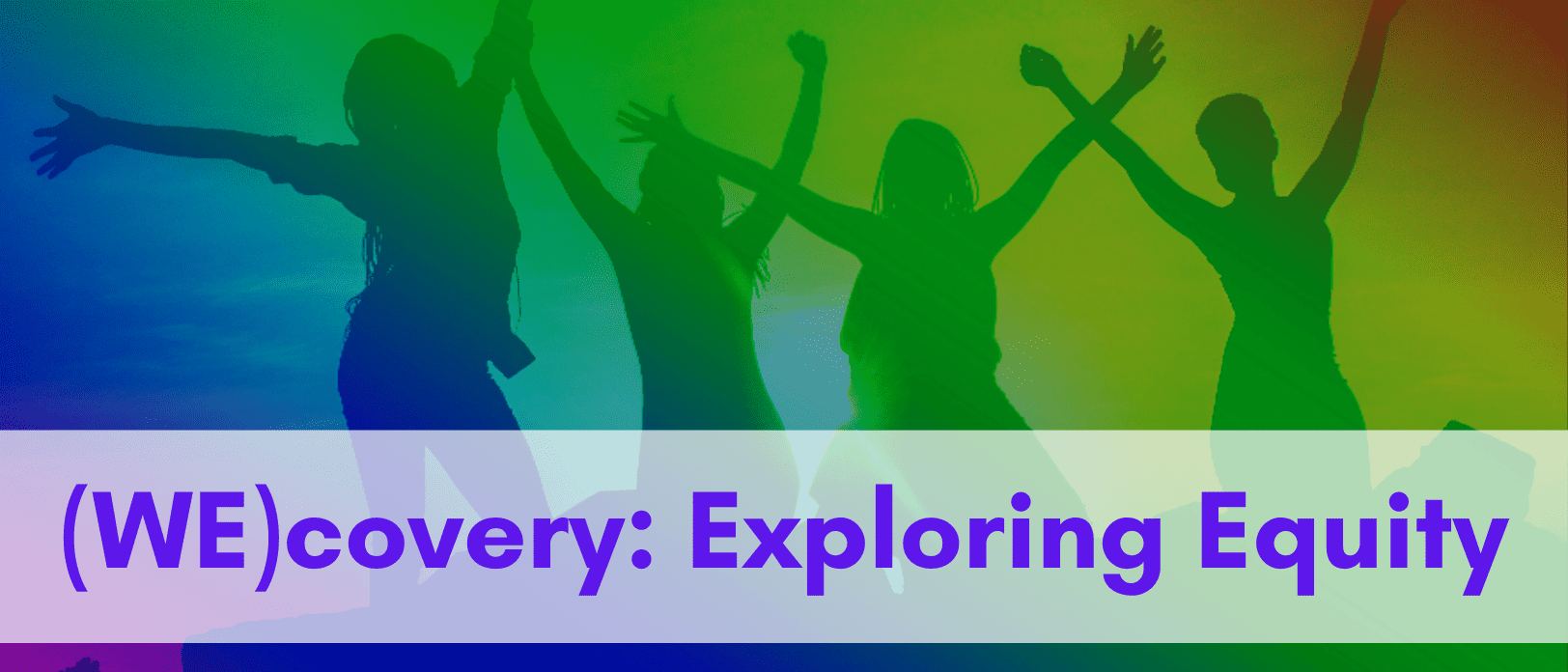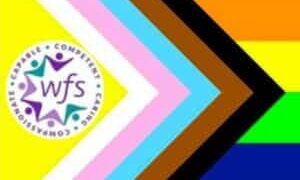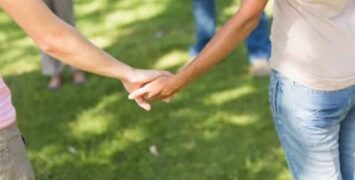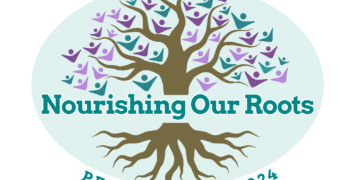Your cart is currently empty!

What I’ve Learned from Eight Months of (WE)covery
It has been 8 months since WFS started its diversity, equity, and inclusion (D.E.I.) group and wow have I learned a lot! I decided to start the group after some serious reflection following my How Intersectional is Your Feminism? blog post. I felt a real sense of urgency that day and I knew I didn’t want to lose that momentum. I have learned in my recovery that the best way to keep myself accountable is to get others involved, so I decided to start a group (#12).
Through much thought, consideration, and discussion, I decided to start a hybrid group that would be part support group, part organizational development group, with WFS Vice President Veena Iyer. We would introduce D.E.I.-related topics and women would have a chance to discuss them and reflect on how they affect us personally for most of the meeting (#8). Then in the last 10-15 minutes, we would “zoom out” and see how we could apply the topic to WFS as a whole, using the information to help us reach – and speak to the needs of – a more diverse group of women (#12). After our first meeting or two, we even had a name: (WE)covery: Exploring Equity.
I have learned that I have a lot to unlearn.
We have explored some pretty difficult topics, such as how being a “white ally” can be tricky and why there is such a disconnect about how people of color and white folks think about race. We have learned about white fragility and the pervasive roots of white supremacy in our culture. We’ve talked about how the drug war has unfairly targeted people of color and created a new basis for legal discrimination and how racial bias creates health disparities as early as birth. It seems that for every topic we cover, five more potential topics emerge!
I have learned that it is about me.
It has been comfortable – well, maybe not always comfortable – to learn about the historic foundations and systems of oppression in our culture. I could look objectively at these systems which predated me and were certainly outside of my immediate control, reassuring myself that I was raised not to see color and to treat everyone equally. I was, as author Layla Saad says, “one of the good ones.” How silly that I thought that I could grow up in a society with these pervasive systems of oppression and escape without any personal biases! But having developed implicit bias doesn’t make me “bad,” it makes me human.
(WE)covery has challenged me to go deeper, to really dig in and see how these things have affected my experience of the world. It has challenged me to step out of complacency and into action, identifying ways to do whatever I can to fight oppression, however small (#13). In going deeper and learning more, I’ve also discovered that while the disadvantages are always greater for the marginalized groups, being in dominant groups has downfalls, too. By embracing the fierce individualism that comes with whiteness, we also go through a dehumanization process and lose connection to our communities. My mom really (accidentally) hit the nail on the proverbial head when I was a kid and asked her about our heritage. Her response: “We’re just good ol’ American mutts, Adrienne.”
I have learned that this work is messy.
Really messy! Boy, have we had some blowouts, and I have definitely encountered some serious learning curve. This is such a challenging topic for so many, and the drop-in format brings an extra layer of complexity that we didn’t anticipate well. As with life, we have had to make course corrections, posting more introductory content in our (WE)covery forum and creating a separate Zoom link so people couldn’t accidentally stumble into the middle of a charged conversation. We’ve also had some really good process-related topics such as calling in vs calling out and how to have better political conversations which have helped us developed our discussion skills.
And of course, I am beyond grateful for our co-facilitator, Veena, who helps me debrief and supports me when I feel challenged by the AFGOs (Another Fabulous Growth Opportunity).
I have learned that it goes deeper than outreach.
Of course, the simplest answer to the question of how to make our program more diverse is to increase outreach, and to do more targeted outreach to underrepresented populations and include things like a variety of skin tones and personality types on marketing materials. But we’re gaining insight into the fact that it needs to go deeper than that. The phrase “diversity, equity, and inclusion” (D.E.I.) lends a lot of information here. Improving outreach can get you to diversity, which is really about getting a wide range of people showing up. That’s the first step. Then comes inclusion. When these diverse folks show up, they are greeted, welcomed, and included in the group. A great second step. And the deeper goal is the third step, equity, which is make sure that everyone is feeling fully seen, celebrated, and their needs are being addressed as fully as possible.
Now, our core program – the 13 Acceptance Statements, Levels of Recovery, and other WFS tools – appears that it should work equally well for everyone, and the consensus in the appears to be that this is true. And we have started to identify some way that our services and literature might be enhanced to address the needs of a more diverse group of women more fully. For example, it has come up a few times that addiction is even more heavily stigmatized in a lot of Asian cultures than it is in the US, especially for women. It is a complete cultural taboo to even mention it, much less seek support from friends and family. So in parts of our literature that talk about building a support network, we may want to simply acknowledge that this may be more difficult in such cultures and give additional strategies for those women. So the idea is not to change the core program itself, but to enhance the tools offered to meet a wider set of needs.
What the WFS organization is doing.
The WFS Board of Directors has made a strong commitment to ensuring that the New Life Program is accessible to and celebratory of all women. As most of you know, we have been engaged in developing a strategic plan since last summer, and the finalized plan is scheduled to be shared later this month. The board took careful steps to ensure that D.E.I. objectives are woven throughout the plan. They also put their money where their mouth is, dedicating a portion of this year’s budget to providing much-requested training to our volunteer leaders and group facilitators on this topic. The live, interactive Zoom training will be the first of its kind for WFS and will serve as a pilot for future empowerment opportunities.
Honoring our legacy.
I like to think that if Jean Kirkpatrick were still around today, she would be embracing this work to ensure that her life-saving New Life Program remains relevant, helpful, and empowering to all women in recovery from problematic substance use. I believe that the internal work I do to challenge my subconscious biases is a part of my spiritual growth in recovery (Statement 8). And I know that I am so proud to work for an organization that shows such a commitment to operate within its core values – to reach all women with competence and compassion!
Much Love,
Adrienne Miller
President/CEO
Women for Sobriety, Inc.
You are invite to join us!
Edit 5/26/21: (WE)covery has a new, simplified schedule!
Join us every Monday at 6:30 pm US/Eastern
1st & 3rd Sunday of each month, 12:00-1:30 pm US/Eastern
2nd & 4th Thursdays, 3:00-4:30 pm US/Eastern
Must be logged in to WFS Online to join – registration is always free!



